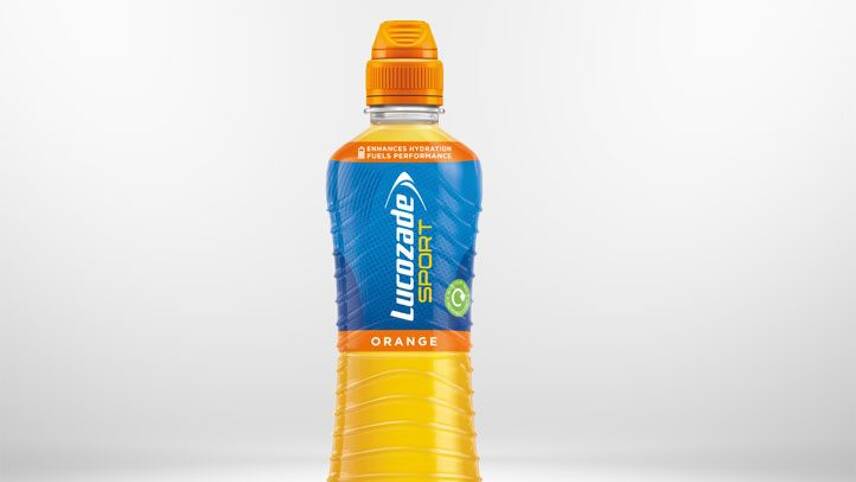Register for free and continue reading
Join our growing army of changemakers and get unlimited access to our premium content

Pictured: The new Lucozade Sport bottle format
Ballygowan claims that its move to fully recycled bottles, which should be completed by the end of 2022, will mitigate the use of 1,500 tonnes of virgin plastic every year.
The transition is being made possible by a €2m (£1.72m) investment in packaging machinery and processes at Ballygowan’s main source and plant, at Newcastle West in Limerick. As well as switching to recycled materials, the company is redesigning the bottles so they contain less plastic in the first instance.
Britvic, Ballygowan’s parent company, claims it will also be ready to move to 100% recycled PET (rPET) bottles for its other brands made in the UK within the next 18 months. Brands covered by this commitment include Robinsons, Tango and Fruit Shoot – the latter of which is already using 100% rPET for ‘Hydro’ drinks lines.
rPET for the drinks bottles is being procured through a partnership with Esterform Packaging. Britvic funded the firm to the tune of £5m, for the creation of an rPET manufacturing facility in North Yorkshire.
Britvic Ireland’s managing director Kevin Donnelly called the new investment in Ballygowan “a major step to reduce our impact on the planet”.
Lucozade
In related news, the parent company of Lucozade in the UK, Suntory Beverage and Food GB&I, has confirmed a £6m investment to add new on-pack recycling prompts to drinks bottles, and to increase the sourcing of recycled content. Additionally, a redesign will reduce the size of the label.
For Lucozade Sport drinks, 100% recycled bottles and smaller sleeves will be added this year. A recyclable alternative to the silicon valve will then be added next year.
For Lucozade Energy drinks, transparent sleeves are rolling out now, and a sleeve that is 50% smaller will be added next year.
Suntory Beverage and Food GB&I claim that the changes will mitigate the use of 3,500 tonnes of virgin plastic each year, while also reducing its annual carbon footprint by 9,000 tonnes. It also hopes that the on-pack recycling labels will increase awareness of the fact that the bottles can be recycled, and should be sorted into the clear plastics stream at UK recycling centres.
The firm is notably working to halve emissions by 2030 and reach net-zero emissions by 2050. On plastics, its aim is to ensure that all packaging is “completely sustainable” by the end of this decade. The company’s definition of “completely sustainable” covers full recyclability, high recycling rates and eliminating virgin fossil materials wherever possible.
Sarah George


Please login or Register to leave a comment.